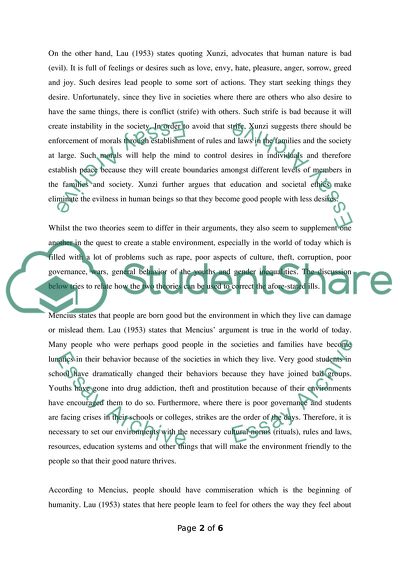Cite this document
(The Theories on Human Nature of Mengzi and Xunzi Term Paper, n.d.)
The Theories on Human Nature of Mengzi and Xunzi Term Paper. Retrieved from https://studentshare.org/social-science/1814490-the-theories-on-human-nature-of-mengzi-and-xunzi
The Theories on Human Nature of Mengzi and Xunzi Term Paper. Retrieved from https://studentshare.org/social-science/1814490-the-theories-on-human-nature-of-mengzi-and-xunzi
(The Theories on Human Nature of Mengzi and Xunzi Term Paper)
The Theories on Human Nature of Mengzi and Xunzi Term Paper. https://studentshare.org/social-science/1814490-the-theories-on-human-nature-of-mengzi-and-xunzi.
The Theories on Human Nature of Mengzi and Xunzi Term Paper. https://studentshare.org/social-science/1814490-the-theories-on-human-nature-of-mengzi-and-xunzi.
“The Theories on Human Nature of Mengzi and Xunzi Term Paper”, n.d. https://studentshare.org/social-science/1814490-the-theories-on-human-nature-of-mengzi-and-xunzi.


